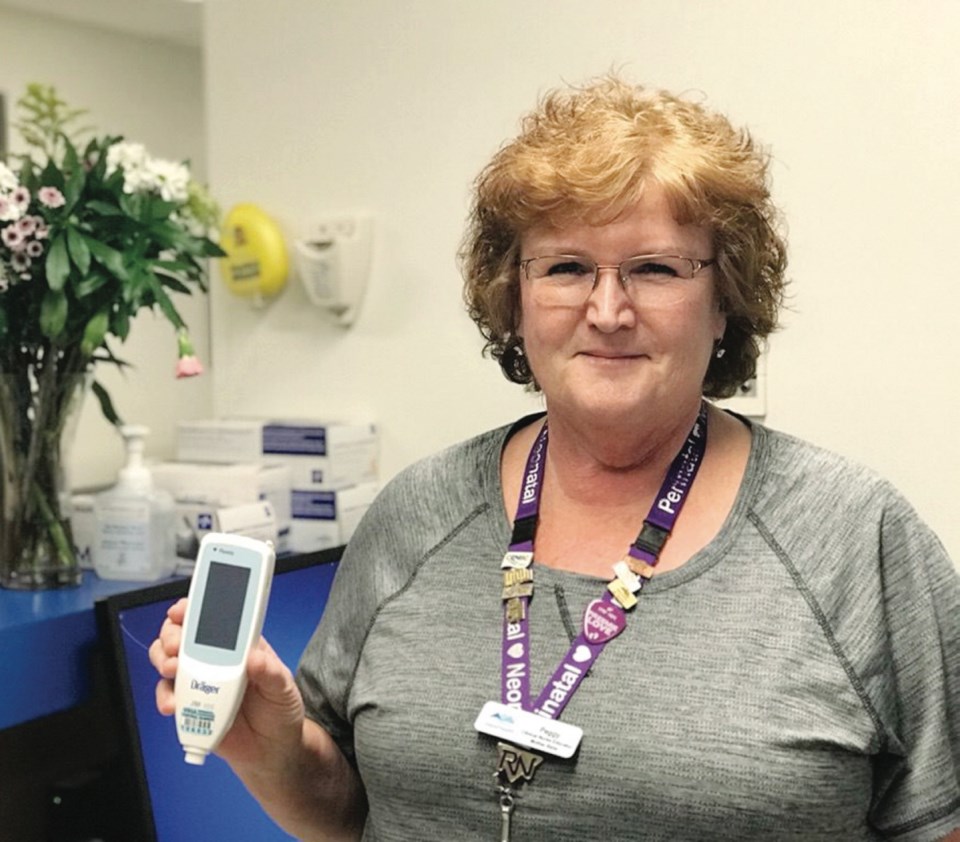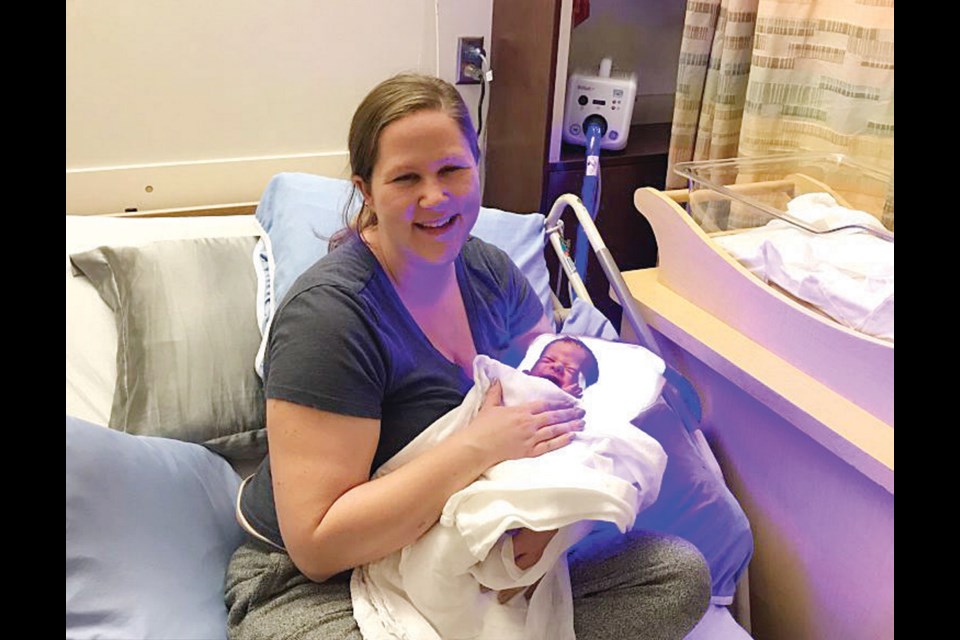This is one of a series of stories about the Victoria Hospitals Foundation’s You Are Vital campaign.
Rachel Leff had been through it all before when she went into the hospital to give birth to child No. 3.
This time, doctors decided to induce her at 36 weeks, meaning she would have a pre-term pregnancy. The Jan. 17 delivery of her son, Jasper, went well, but the baby was born with jaundice, a liver condition that causes yellowing of the skin and can lead to other issues — meaning Jasper would have to spend time in the Neonatal Intensive Care Unit.
One in six babies born at Victoria General Hospital is treated in the NICU, ranging from premature infants to those with cardiac, respiratory and auditory issues.
As well as spending time in the NICU, Jasper was also in the Post-Partum Unit — often called the Mother Babe Unit.
VGH serves as the referral centre for maternity and pediatric care on Vancouver Island, and has one of four high-level NICUs in the province. About 3,000 babies are born each year at VGH.
Jasper’s condition came about because his liver couldn’t break down red blood cells fast enough, leading to the production of a substance called bilirubin, which makes the skin yellow.
“Having your newborn suffer from health issues is a terrifying experience,” Leff said. “Not only was it hard for me to see my baby unhealthy, it was also heartbreaking to be away from my other children.”
Jasper’s condition, physiological jaundice, is one of the most common treated in the NICU. Treatment includes use of a bilirubin meter, a handheld instrument that monitors bilirubin levels without penetrating the skin.

Frequent measurements are taken at set intervals to ensure a newborn’s jaundice is being optimally monitored, said Peggy Quigg, a clinical nurse educator who has been in the nursing profession for more than 39 years.
“It is crucial to monitor bilirubin levels because persistent undiagnosed neonatal jaundice can cause serious conditions such as permanent brain damage.”
One of the items that will be purchased through the ongoing $3.5-million You Are Vital fundraising campaign, being conducted by the Victoria Hospitals Foundation, is a new bilirubin meter costing $10,000 — something that Quigg is looking forward to receiving.
“Having an additional bilirubin meter in the units means we won’t have to wait until this vital tool becomes available,” she said. “It supports our team in ensuring we have enough bilirubin meters to conduct critical testing when we need to.
“It makes a difference for us nurses, but more importantly for the babes in our units.”
Another key part of Jasper’s treatment was a bilirubin blanket, which tackles jaundice by sending out light to break down bilirubin in an infant’s blood. The blanket wraps around the child while a fibre-optic light shines onto the skin.
Both the Victoria Hospitals Foundation and VGH Auxiliary have had a hand in funding these blankets.
Quigg said Leff was right there during the treatment with the bilirubin blanket.
“She didn’t want to be separated from her baby, so we were able to provide phototherapy on our Mother Babe Unit.”
Leff said that seeing Jasper receive his care gave her peace of mind.
“The fact that I was able to hold Jasper while the tests were being done and that the results were immediate made all the difference,” she said. “I was happy to know that Jasper did not experience any discomfort during the tests and that he was receiving the exact care he needed.”
Jasper’s overall stay at the hospital, including in the NICU and Post-Partum Unit, was seven days. Leff is grateful for the treatment that was given to him, and is happy that the hospital had the important equipment it needed.
After receiving a clean bill of health, he was able to meet his siblings for the first time — four-year-old Oliver and two-year-old Spencer.
Leff said she and husband, Jason, were impressed with the way the time in the hospital went for Jasper.
“We were fortunate enough that he only needed to spend a few days there, but during that time we met many caring and knowledgeable nurses and other staff,” she said. “It is a scary and overwhelming environment for parents seeing their tiny babies hooked up to so many beeping machines, but everyone was so kind and did their best to help us understand what everything was for, as well as allowing us to be involved in his care as much as possible.”
She said she is hopeful that sharing her story will help to show others how vital it is to support health care in the region.
Quigg also acknowledged those who step up with donations to help infants get a good beginning.
“I think that it’s a very special time in a mom and a baby’s life and their family’s, and they all remember this time and the support that they’re given as they begin their journey together,” she said. “We want to make sure that they are well and healthy. They’re just adjusting, mom’s recovering from birth and baby is just starting out life.”
The best equipment makes it all possible, Quigg said.
“That’s just so important in our busy, clinical day,” she said. “It’s a huge component of our care to our moms and babies.
“We really thank any donors.”
The series
- Trip to doctor for 'cold' led to discovery of cancer in lung
- Putting moms and newborns first at Victoria General Hospital
- When the doctor becomes the patient
- Royal Jubilee lung tests prove a lifesaver for asthma sufferer
- Artist Robert Bateman takes hospital’s care to heart
- Heart attack a timely wake-up call



